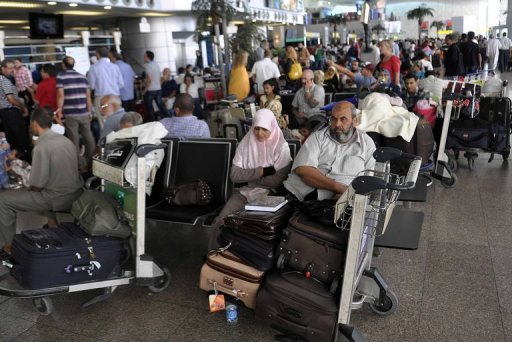Sharm El-Sheikh – The Ministry of Planning and Economic Development is preparing to present new projects to investors in the water desalination projects sector in order to achieve water security.
The Sovereign Wealth fund will explore the potential in this sector, especially after attracting hydrogen pledges within a plan to turn Egypt into a regional hub for renewable energy.
Daily News Egypt interviewed Minister of Planning and Economic Development Hala El-Said on the side-lines of the UN Conference of Parties on Climate Change (COP27) to learn about the new plans of Egypt’s Sovereign Fund.
To start off, what are the specifics of the investment plan of Egypt’s Sovereign Fund for the coming period?
Egypt’s Sovereign Fund has adopted an ambitious plan towards water desalination projects in order to achieve water security in line with the Egyptian state’s strategy in this direction and to rationalise water consumption.
The fund also periodically updates the strategy for sustainable development in order to suit the orientations of the Egyptian state and the renewable variables in the investment arena.
Furthermore, Egypt has invested heavily in the field of infrastructure to be attractive to the local and foreign private sector, including amending legislation to be more accommodating.
Additionally, the authorized capital of the Sovereign Fund has increased from EGP 200bn to EGP 400bn with the aim of eventually reaching EGP 1 trillion within to have the ability to absorb all partnerships.
What is the role played by the fund in attracting investments to Egypt?
The fund plays a major role in studying investment opportunities in Egypt and announcing them to the private sector in the form of an investment product to attract investments, as well as entering a non-governing share in those investment products with the aim of reassuring investors; this process is called risk reduction.
Egypt has achieved a great leap in green hydrogen projects in cooperation with the Ministry of Electricity and Renewable Energy, with the ministry handling the technical side while the Sovereign Fund undertakes the investment side.
What are the details of the recently signed green hydrogen agreements?
The green hydrogen projects are proceeding through three main steps, the first of which is to attract investors to projects in Egypt, where the fund has attracted the largest international companies in the field from all countries, especially the US, India, Australia, and the UK.
Negotiations on these projects have been ongoing for a long time, as investors have seen the opportunities, possibilities, and geographical locations of the projects and signed initial contracts. The investors then began to prepare the necessary studies for these projects and search for the necessary funding, partners — whether local or international — and export opportunities.
The fund then examined those studies and classified them accordingly. Among the 15 initial agreements that were signed, nine framework agreements were actually contracted in the field of green hydrogen
Egypt has signed framework agreements with international energy companies to establish nine projects for the production of hydrogen and green ammonia in the Suez Canal Economic Zone (SCZone) at a total investment cost of $83bn.
The factories are expected to produce up to 7.6 million tonnes of green ammonia and 2.7 million tonnes of hydrogen annually. When fully operational, Egypt will be well on its way to becoming a regional green hydrogen hub.
When will the actual implementation of these projects take place?
We expect to reach a final shareholder agreement formula in the contracts concluded during the second quarter (2Q) of 2023, after the investors complete the final studies of the projects.
The majority of companies will reach the final stage, especially as they are prominent international companies. There is also an expected framework agreement for an alliance of two international companies that will be signed during the coming period.
Additionally, about $16.5bn in investments for the first phase of hydrogen projects will be implemented by 2025/26, $38bn by 2030, and $28.5bn by 2035.
Also, renewable energy is expected to constitute 42% of the country’s total energy mix by 2035, and our goal from the energy agreements at the COP27 is to turn Egypt into a hub for hydrogen.
What about the latest developments in the inclusion of government companies in the Pre-IPO Fund?
The Pre-IPO Fund includes about five government-owned companies with a value ranging between EGP 5-6bn. The promotional round for the fund will take place at the beginning of next January.
What about the role of the private sector in financing the climate change agenda?
The state’s economy needs more participation from the private sector, which is what Egypt is doing through the sovereign fund.
The government supports the establishment of an investment company in carbon certificates and is working on legalising the matter in Parliament.



